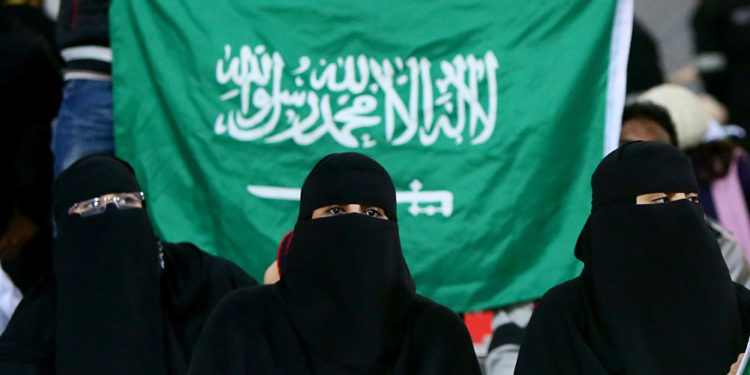House Saud Promotes Allowing Women to Travel to Cover up their Abuses

The Saudi regime recently used promoted the decision to allow women in the kingdom to travel alone for the first time, although it is a basic right to cover up its systematic violations of women’s rights and the arrest of dozens of women activists and jurists.
Saudi Arabia’s international airports have seen the latest “firsts” of what Saudi women have been able to do recently. They can now leave the country without the permission of their relatives as the kingdom loosens restrictions on the man’s criticized guardianship system.
An international news agency published interviews with Saudi women at the gate leading to the plane chanting: “You feel human, you are a perfect human being … not half a human, not a part, a perfect human.”
The Kingdom has long tolerated Western condemnation of the male guardianship system, which requires that every female relative, father, brother, husband or son, have to agree to important decisions throughout her life.
Although some major constraints remain, the authorities have steadily amended regulations as they try to increase the openness of society within a broader reform agenda led by Mohammed bin Salman, the de facto ruler of the kingdom.
The latest amendments allowed women over the age of 21 to obtain a passport and leave the country without a guardian’s permission. It has also enabled them to register births, marriages, divorces and to issue official family documents, as well as guardianship of minor children.
In contrast, women complained on Twitter that the e-services portal has not yet allowed them to apply for passports online. Local media said women needed to apply in person until the electronic system was activated.
Human Rights Watch called the latest amendments a long-awaited victory and urged the authorities to ensure that parents do not use judicial decisions to marginalize them.
“These changes are among the biggest reforms on women’s rights that Saudi Arabia has endorsed and the first significant decision outside the male guardianship system in the country,” said Ruthna Begum, women’s rights researcher for the Middle East and North Africa.
“The Saudi authorities must now end all remaining discrimination against women in both law and practice.”
The Saudi regime has been the subject of regular international criticism as it detained dozens of women’s rights activists who called for special reforms after the killing of journalist Jamal Khashoggi at his country’s consulate in Istanbul last year.
Issues that have been widely covered this year for women who have fled abroad, which they say are abused by their families, have further cast a negative light on the male guardianship system under which the Saudi regime suppresses the Kingdom’s women.
The status of jurisdiction between law and custom makes it a thorny issue for Prince Mohammed, who last year indicated he would prefer to end it but declined to approve its cancellation.





